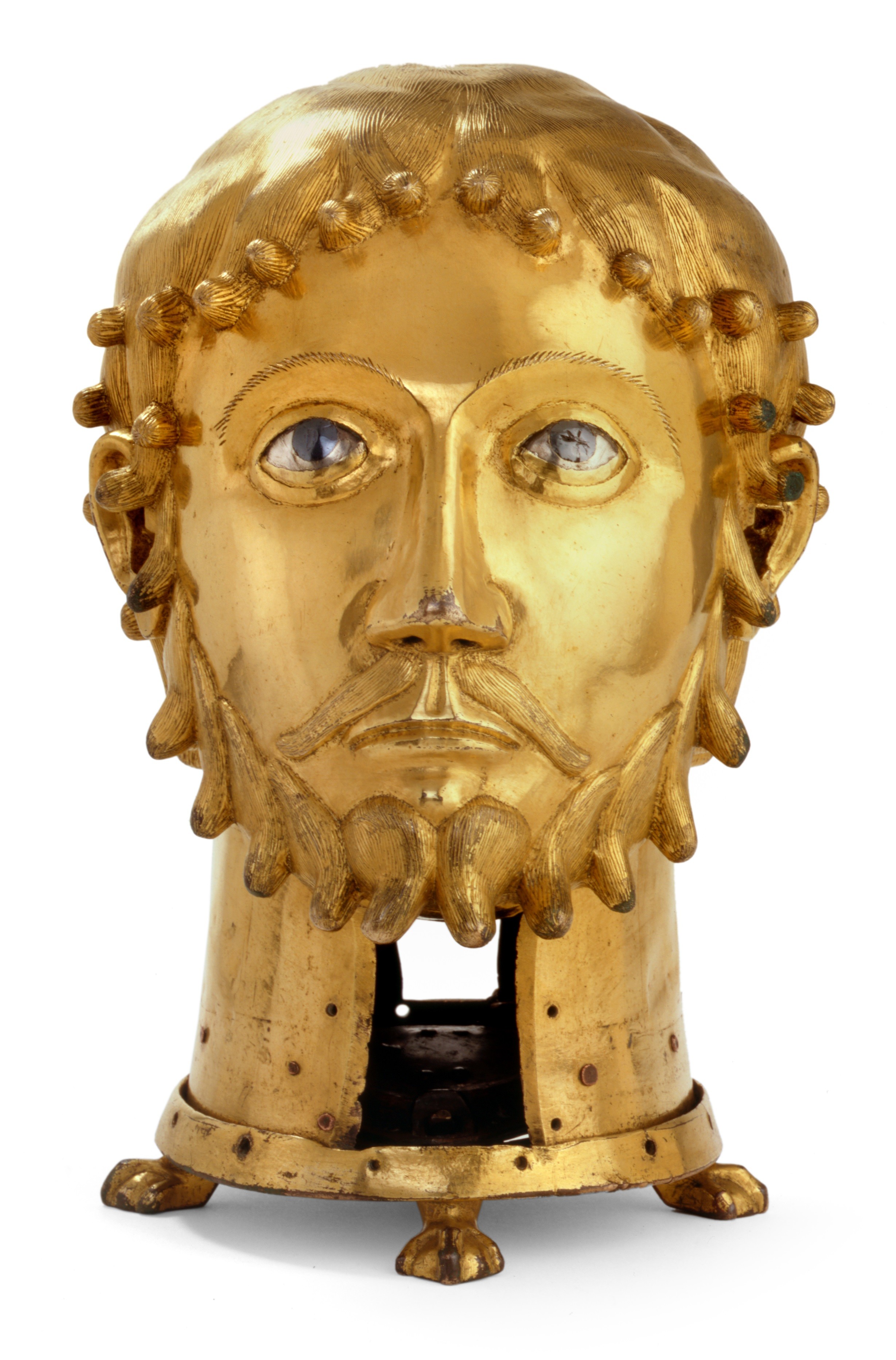Ursprünglich handelte es sich bei dem romanischen Exponat um ein Reliquiar, das kostbare, verehrungswürdige Reliquien eines oder mehrerer Heiliger in sich barg. Die bedeutendste Reliquie war der Zahn Johannes des Täufers, der seit dem 12. Jahrhundert neben der Muttergottes als Patron des Frauenstiftes Fischbeck verehrt worden ist und mit zahlreichen Stiftungen bedacht wurde. Somit kann der Fischbecker Kopf als Johannesreliquiar angesprochen werden, obwohl er nie den gesamten Schädel des Heiligen enthielt.
Der so genannte Fischbecker Kopf ist das wertvollste Objekt der Mittelaltersammlung.
en

